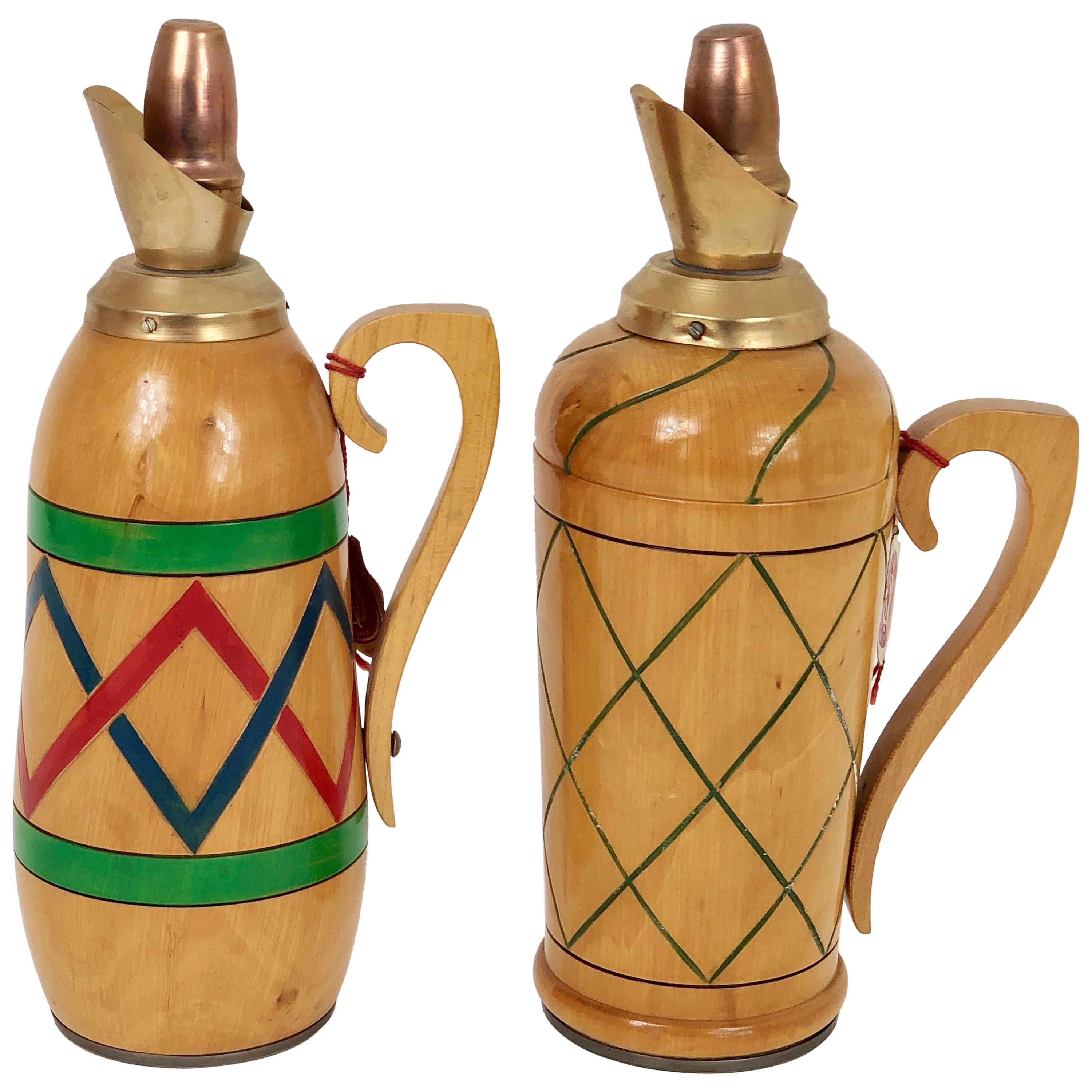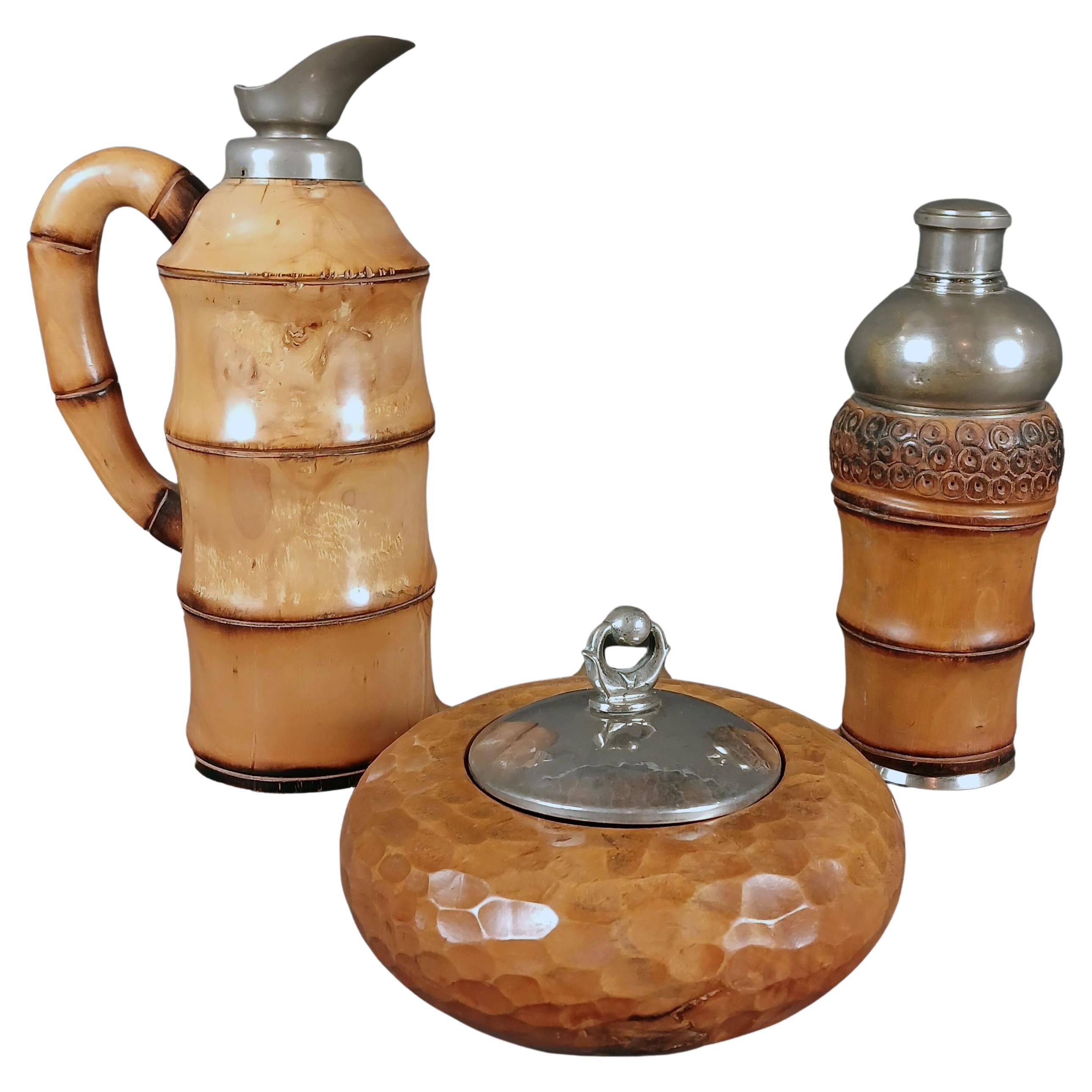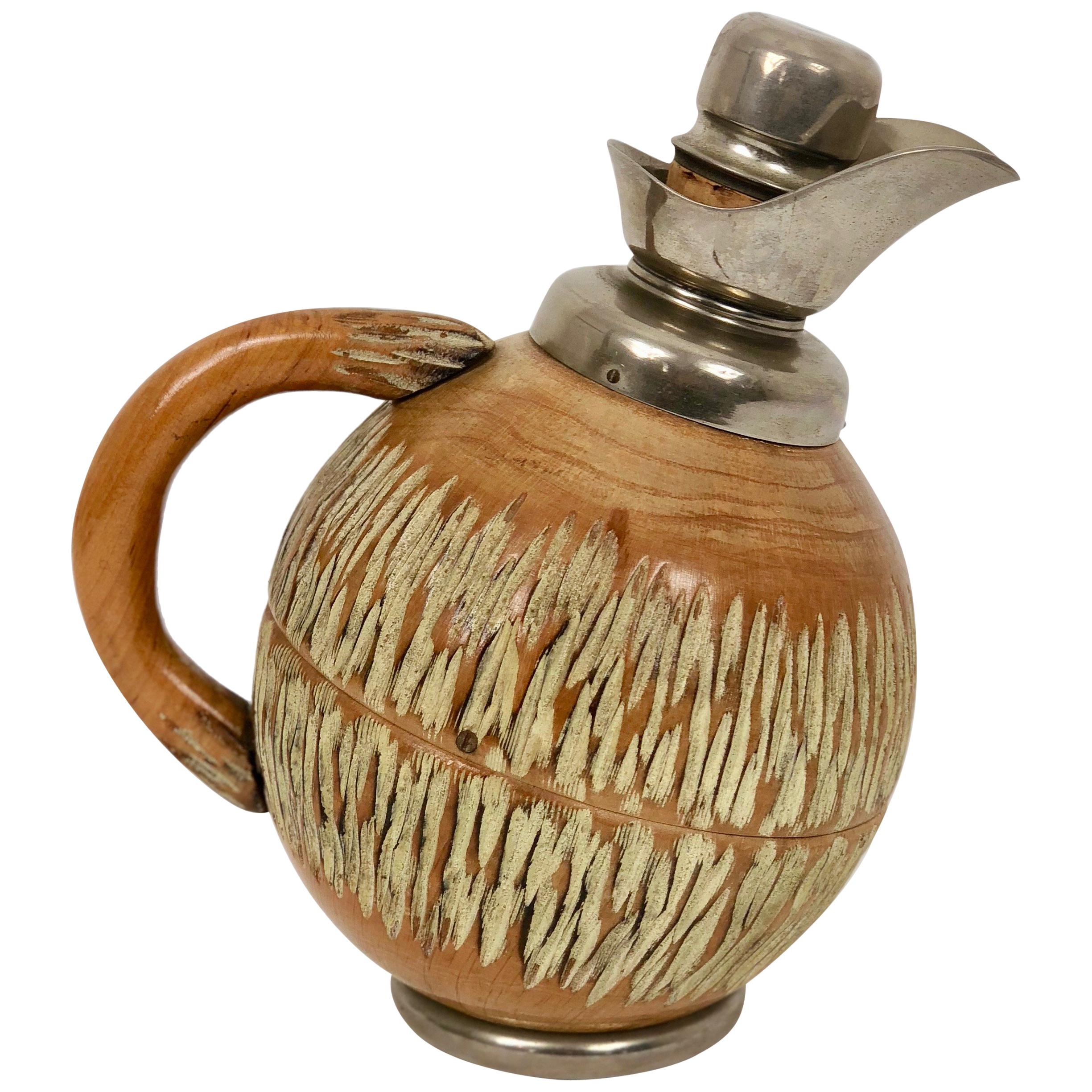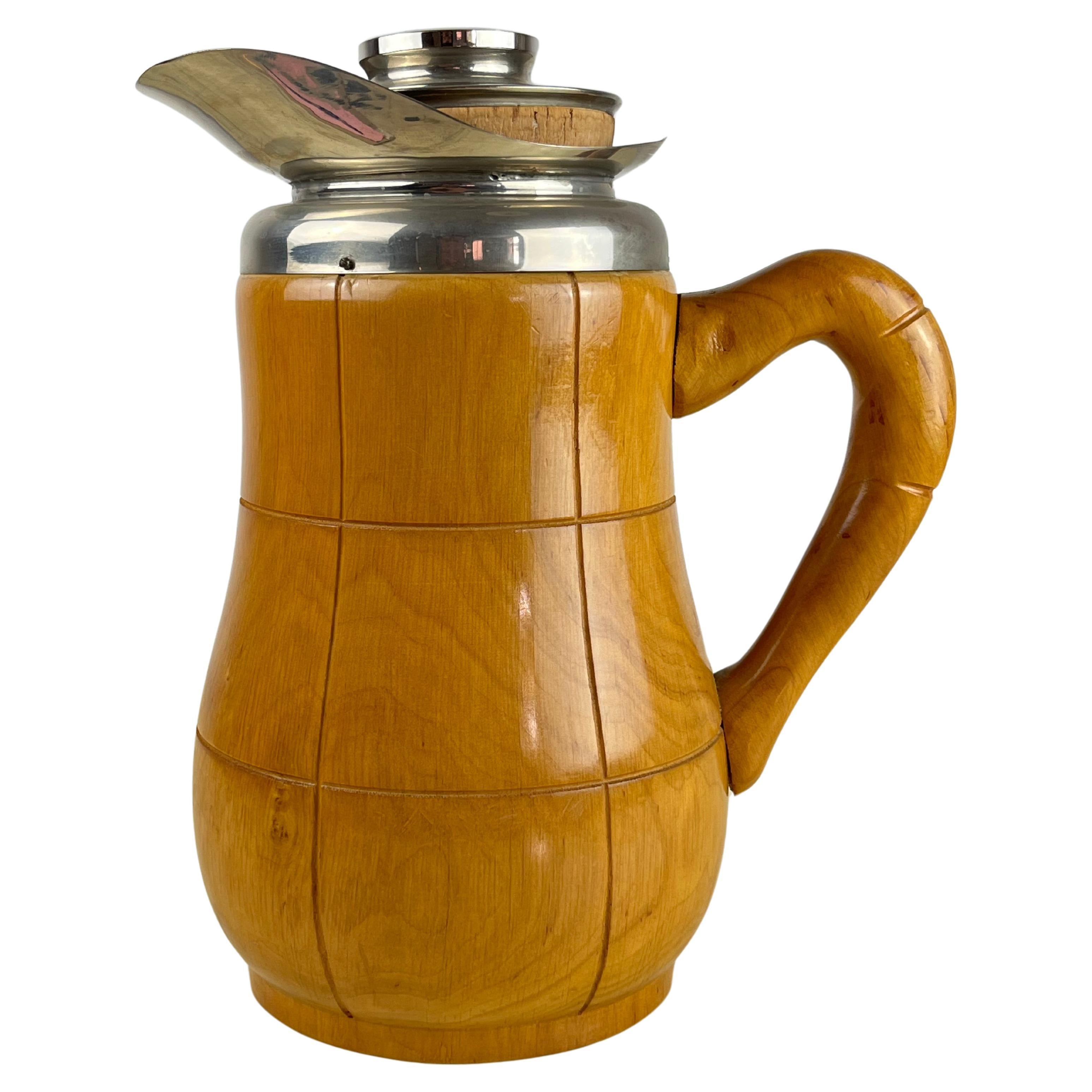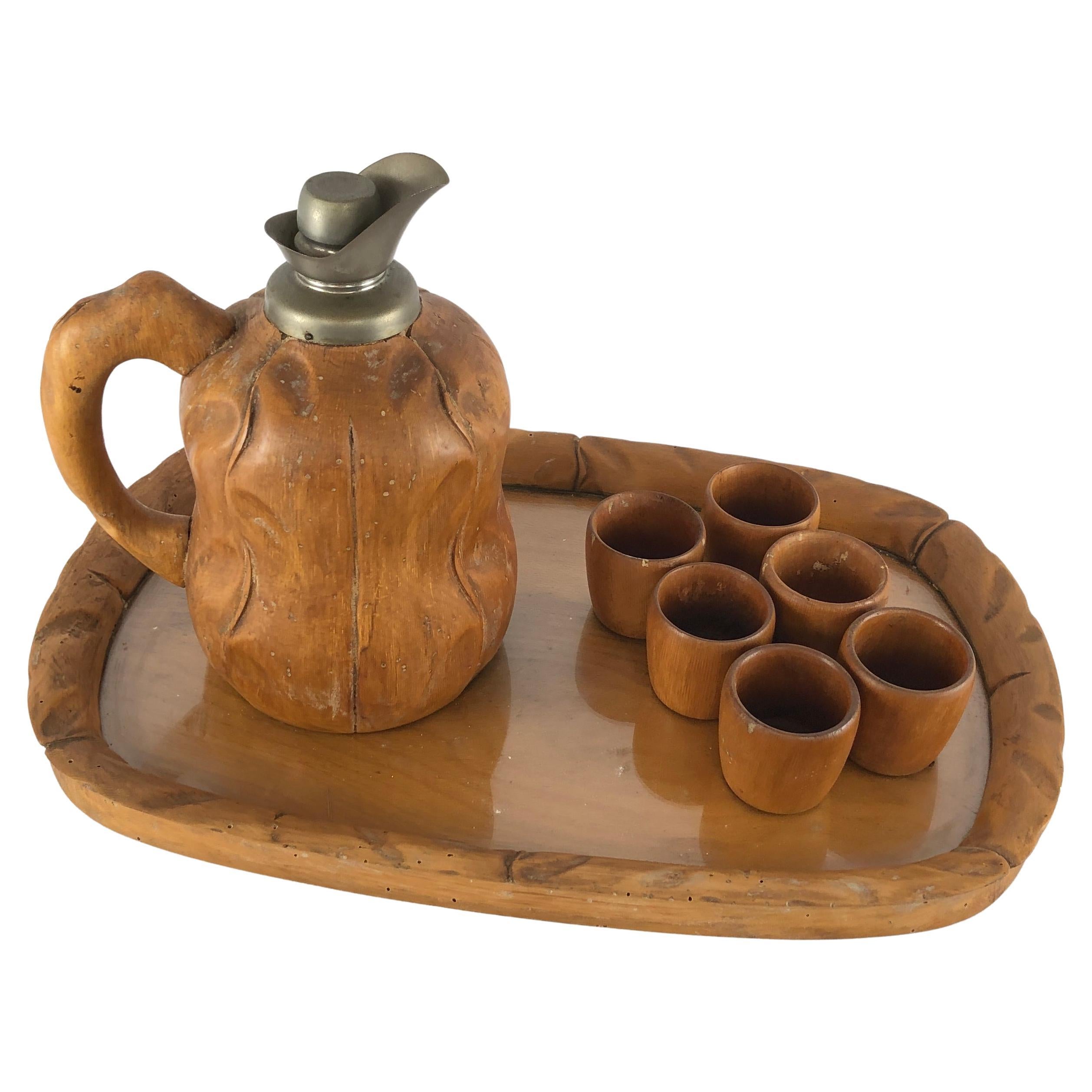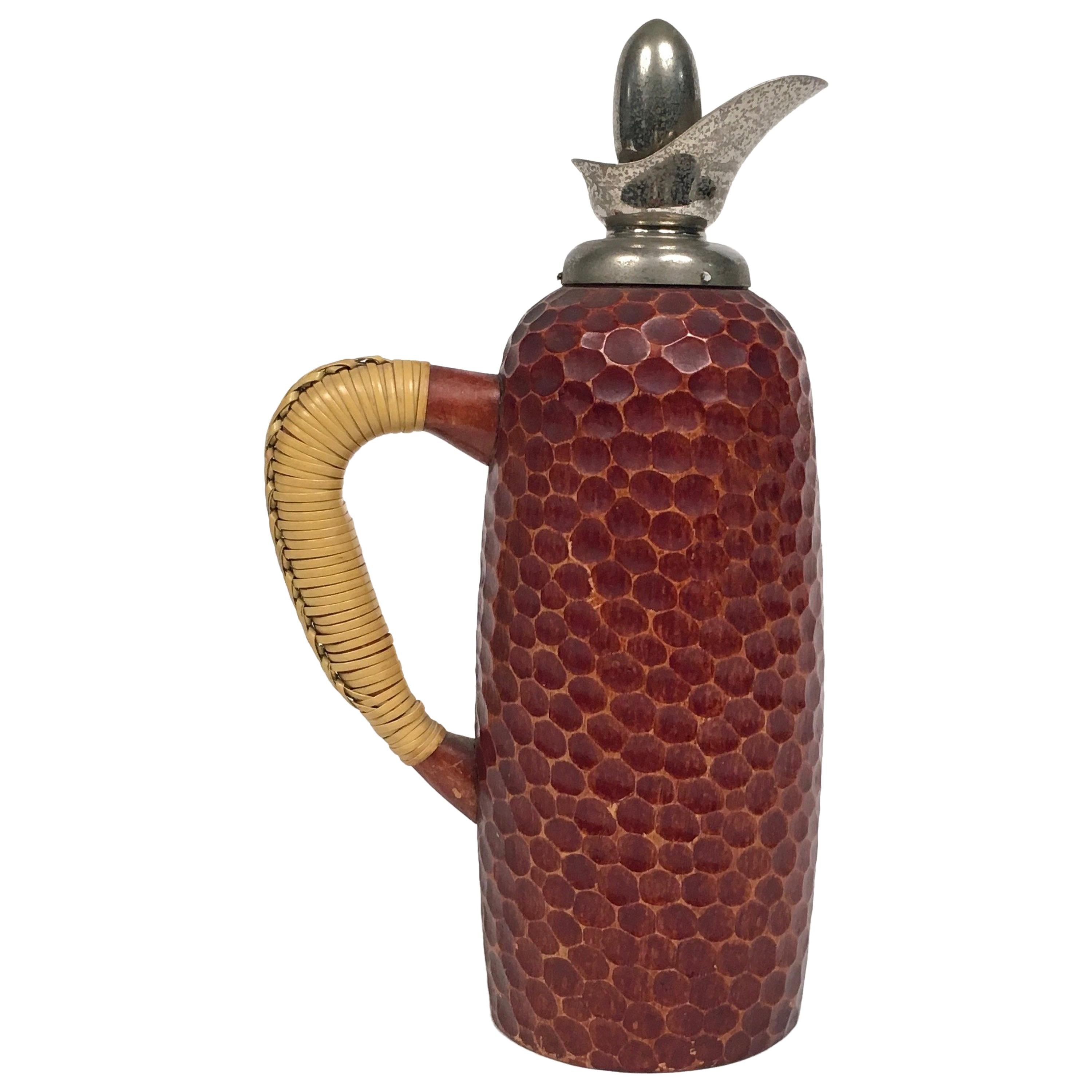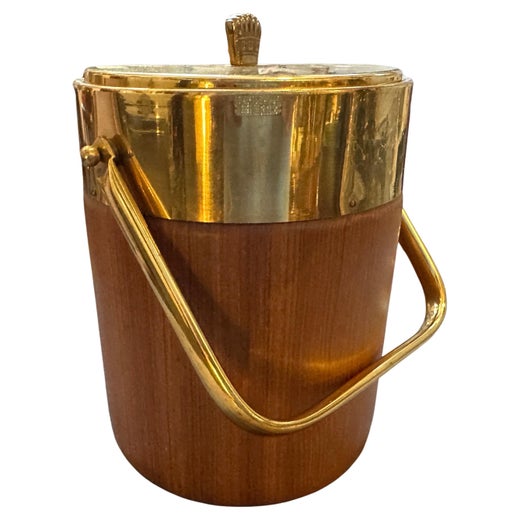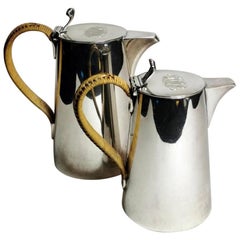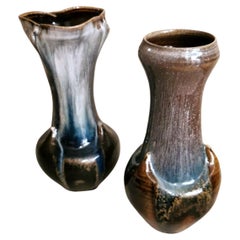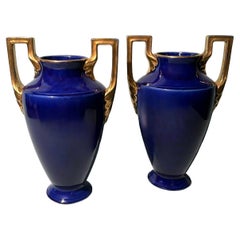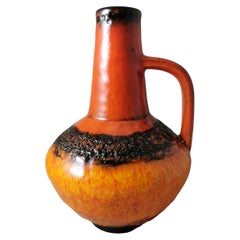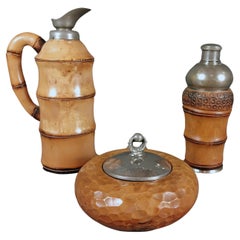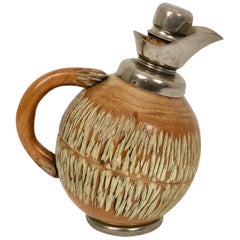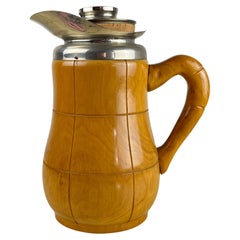Tura Aldo for Macabo Pair of Italian Thermal Jugs in Bamboo and Metal
About the Item
- Creator:
- Dimensions:Height: 13.78 in (35 cm)Width: 5.91 in (15 cm)Depth: 7.88 in (20 cm)
- Sold As:Set of 2
- Style:Art Deco (In the Style Of)
- Materials and Techniques:
- Place of Origin:
- Period:
- Date of Manufacture:1950-1955
- Condition:Wear consistent with age and use. The jugs are in good condition.
- Seller Location:Prato, IT
- Reference Number:Seller: 148071stDibs: LU4632239923782
Aldo Tura
One of the most enigmatic and polarizing figures to emerge in Italian design, Aldo Tura is an outlier in the world of mid-century furniture. The designer’s glamorous bar carts, coffee tables, cabinets and more resist categorization and draw inspiration from Art Deco, Art Nouveau, Baroque, Surrealist and modernist styles.
Tura moved through distinct phases in his career in terms of aesthetics, influences and finishes, rendering his life’s work exciting and diverse. Despite these phases, he held a singular devotion to one material: lacquered goatskin. Tura established a furniture production house in 1939 in Lombardy, and some of his early work focused on tables, decorative lamps and more. He later expanded to bar furnishings like rolling carts, cabinets and complementary barware accessories like ice buckets and cocktail shakers. The eccentric, gleaming and luxe surface of lacquered goatskin was a constant, along with eggshell, parchment and leather.
By the 1950s, Tura had begun to use hand-painted figural panels on the surface of cabinets, serveware (such as carafes) and other pieces. He even replicated famous works by artists like Monet and Bruegel the Elder and art from the Middle Ages, sometimes playfully embedding the paintings on cabinets shaped like oversize books. Even though he had a favored color palette of rich chocolate browns and deep emeralds, his style remained consistently hard to define.
Tura was unlike most of his Italian contemporaries but held a similar reverence for the nation’s traditional craftsmanship and artisanal techniques. He never followed the growing trend of mass-produced, industrial furniture and stuck to creating small, meticulously handcrafted collections. This principled choice means that today, a Tura piece is a rare and highly coveted collectible. The Tura firm continues to operate in Brianza, promoting Italian craftsmanship and the eclectic materials embraced by their namesake designer.
Find authentic vintage Aldo Tura furniture today on 1stDibs.
- ShippingRetrieving quote...Shipping from: PRATO, Italy
- Return Policy
More From This Seller
View AllVintage 1910s American Art Deco Sheffield and Silverplate
Silver Plate
Late 20th Century French Modern Ceramics
Stoneware
Mid-20th Century French Art Deco Vases
Ceramic
Late 20th Century German Mid-Century Modern Ceramics
Ceramic
Late 20th Century German Mid-Century Modern Ceramics
Ceramic
Early 20th Century French Art Deco Ceramics
Terracotta
You May Also Like
Vintage 1950s Italian Mid-Century Modern Pitchers
Metal, Brass
Vintage 1950s Italian Mid-Century Modern Barware
Metal
Vintage 1950s Italian Mid-Century Modern Pitchers
Metal
Vintage 1950s Italian Pitchers
Wood
Mid-20th Century Italian Mid-Century Modern Serving Pieces
Wood
Vintage 1950s Italian Mid-Century Modern Pitchers
Chrome
